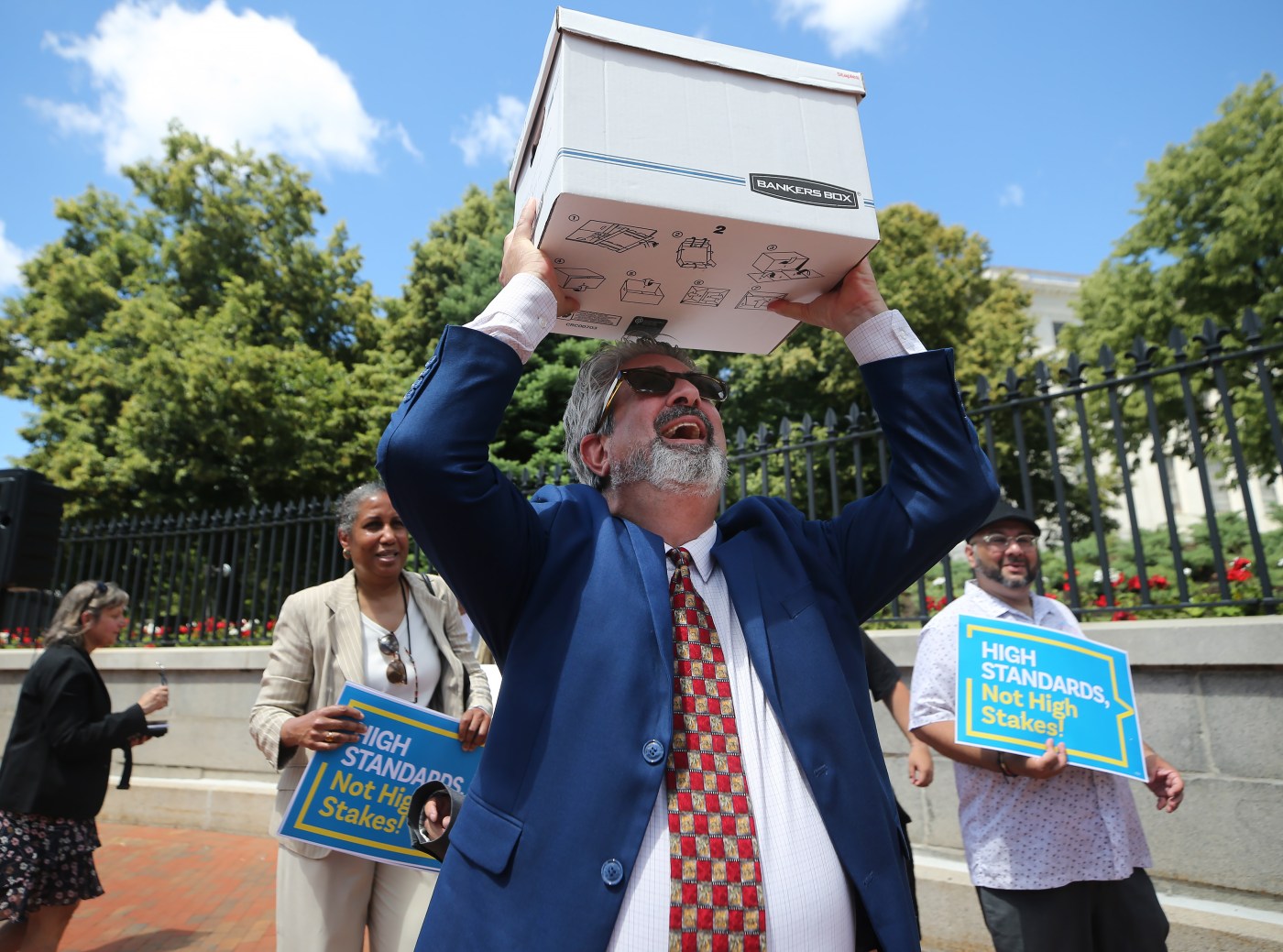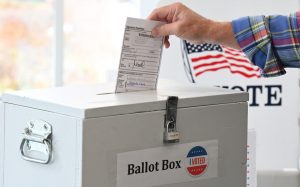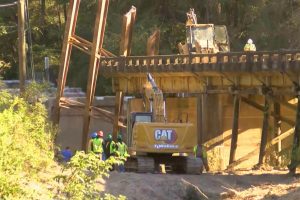
Four out of five Massachusetts ballot questions have strong support, psychedelics a tossup
Most of the ballot questions on the Massachusetts ballot this November seem to be headed for voter approval at this point, according to a new UMass Amherst/WCVB poll, with only the legalization of psychedelics remaining a tossup.
“With only a few weeks to go until Election Day, voters in the Commonwealth are poised to make significant legislative changes through the ballot process,” said UMass political science professor and poll director Tatishe Nteta, citing high support for questions.
Of the five ballot questions, the poll stated, the majority of respondents supported allowing the state auditor to audit the state legislature, Question 1; nixing the MCAS graduation requirement, Question 2; allowing drivers for companies like Lyft and Uber the right to unionize, Question 3; and raising the minimum wage for tipped workers, Question 5.
Question 4, which would legalize natural psychedelic substances for growth, possession and use by people over age 21, was a much closer race, with an even 43% in favor and opposed.
The poll surveyed 700 Massachusetts voters from Oct. 3 to 10.
Voters showed the most support for auditing the Legislature, according to the poll, with 63% in favor and 11% opposed.
“But voters are likely in store for a disappointment,” poll co-director and UMass political science professor Raymond La Raja said. “The measure appears to be a violation of the state constitution according to the Attorney General and may be invalidated by the Massachusetts courts.”
Question 2 showed strong support in the UMass poll, with 53% in favor and 36% opposed. The results also reported another win for the Massachusetts Teachers Association, the ballot initiative’s biggest backer, with more voters recognizing the union’s support of the question.
Fewer voters were able to identify the position of Gov. Maura Healey, the state secretary of education, or Massachusetts AFL-CIO, who all oppose the question.
“I think the best way to keep us at the top and to keep us directly going where we need to go — albeit conceding we need to make improvements, always needing to approve — is for us to maintain this statewide standard, which is currently on the ballot on Question 2,” Healey said, speaking at a press event where she, AG Andrea Campbell and Lt. Gov. Kim Driscoll spoke against the initiative on Wednesday. “And that is why I’m voting no on Question 2.”
Healey and the state leaders argued the question would leave the state’s over 300 school districts with different standards for graduation.
Asked if she regretted not campaigning against the initiative earlier, in light of the question’s strong support, the governor stated there is still time before the election and voters are now learning about the ballot initiatives.
Healey was also asked about the state’s plan if the measure should pass and said she remains committed to keeping high standards but did not give specifics.
In response to the governor, MTA leadership said they were “disappointed” the governor “has chosen to side with the few corporate donors opposing Question 2 and against Massachusetts educators, parents and students.”
The UMass poll also showed 58% approval and 27% opposition to allowing drivers to unionize and even stronger support, 61% approval and 27% opposition, for raising tipped workers’ minimum wage. Support for both questions was especially strong with voters under 30 years old.
Related Articles
Housing remains Massachusetts voters’ top issue, more saying state is on ‘wrong track’: UMass Amherst/WCVB poll
Harris’ interview with Fox News is marked by testy exchanges over immigration and more
Elizabeth Warren, John Deaton follow cordial debate with attack ads
A federal judge halts an Alabama program that purged thousands of legal voters
Jimmy Carter, at age 100, casts his 2024 ballot by mail
Support for the ballot initiative process was high, 76% approval to 4% disapproval, the poll states, “in what could be read as a stunning rebuke of the work of the state Legislature and Gov. Maura Healey.”
“In a year in which both the Legislature and Gov. Healey came under fire for the lack of movement on housing, immigration and climate change, future elections may feature a growth in the use of the ballot process to help solve problems that the state’s elected officials are not interested or inclined to tackle,” Nteta said.


